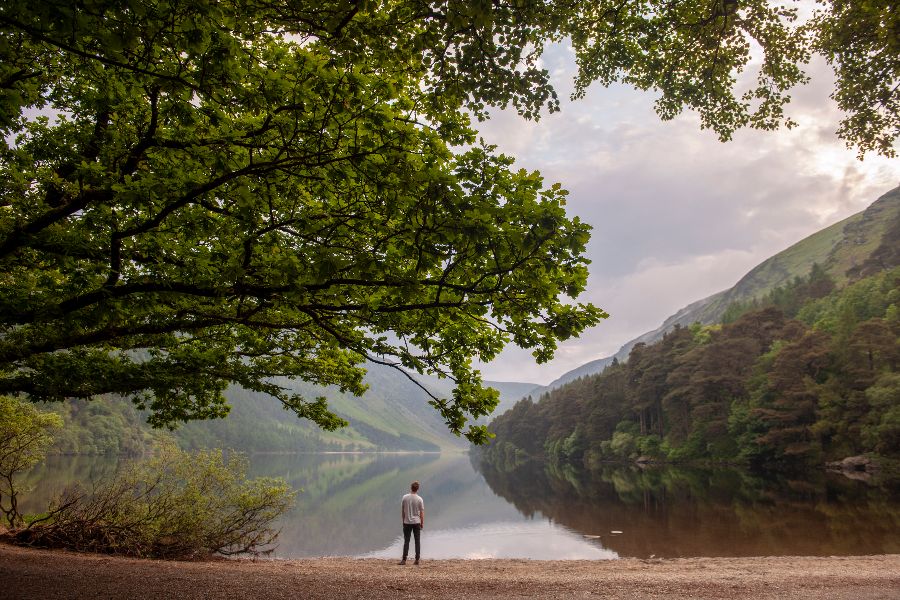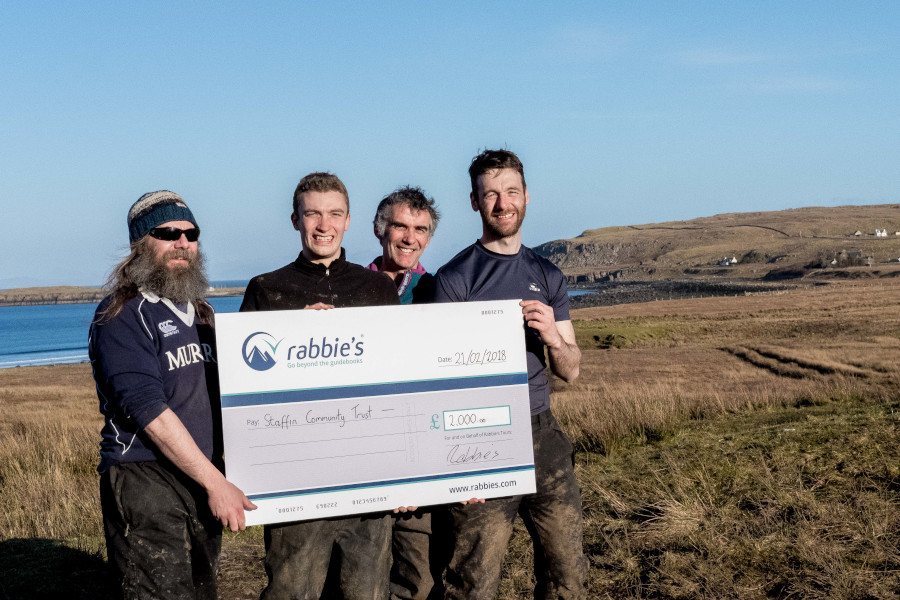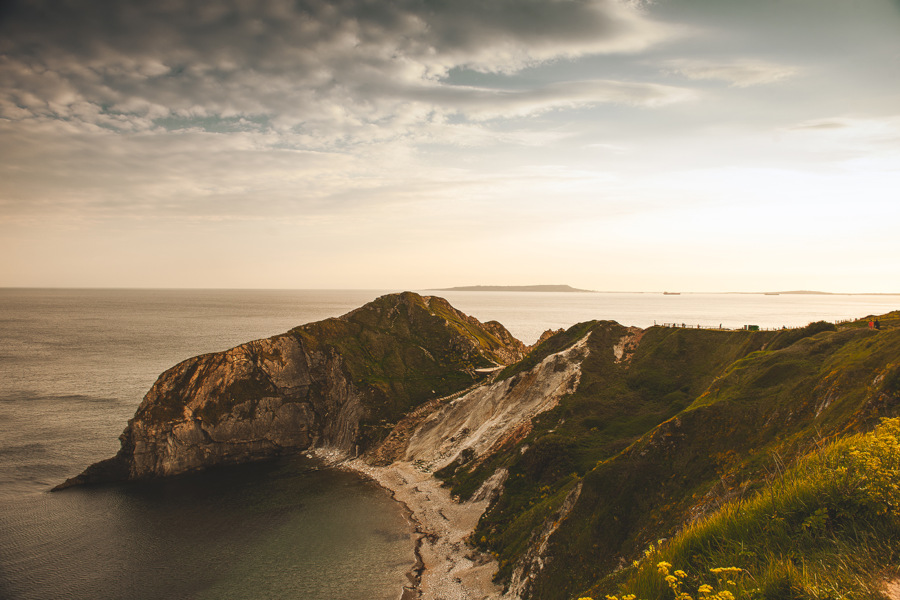Responsible Travel
How We Protect the Places You Love
Our vision is to make the world a better place through travel.
We donate, volunteer, and do as much as we can to ensure that the places we love are there for future generations to enjoy.
Here are a few of the things we've been doing.

Our Principles
We don’t only use small mini-coaches for your comfort.
They also take you further off the beaten track than larger coaches can. Which means our tours help the economies of the little out-of-reach villages and communities.
Using mini-coaches is also better for the environment than using your own car or a rental car. Just imagine 10–16 cars on a road instead of one mini-coach. Not only would renting your own car create more pollution, but some of the villages aren't set up to handle lots of traffic.
We also try to only reserve locally-owned accommodation and recommend shops with local owners. this means your money helps the people who have been there for generations instead of international owners who may have never been to the place.

Our Carbon Tax
We use fuel to take you exploring. It’s an unavoidable issue until we find an alternative way to get you to the most beautiful places in the country.
But we do our best to rectify this by taxing ourselves £10 for every tonne of carbon we use. Our team vote on which community or environmental projects this money should go to every year, and we distribute the money according to where most of our passengers go.
Since 2008, we’ve already raised over £120,000.
Here are a few of the charities we’ve helped:
And many more...
You can apply for funding by sending a completed form to greenteam@rabbies.com.

Our Volunteer Days
We encourage each other to go and volunteer as much as possible - no matter how muddy, wet and windy it gets.
Our team have built paths, cleaned beaches, taught classes, and much more.
Not only is this good for the charities we help, it’s also good for us to learn about the work people do to keep our world beautiful.

Environmental Policy
Our commitment
At Rabbie's we are dedicated to delivering a memorable and enriching experience that lasts a lifetime. These same principles apply to how we manage our business in relation to our community and environment. Below are some of the policies we have in place to achieve these aims.
The scope of this policy
This policy is meant to inform all Rabbie’s employees and customers about our environmental goals. Rabbie’s may amend and update these targets and aims and where applicable, we encourage everyone to take these on to help us travel responsibly.
Guiding principles of the policy
- Alignment with Rabbie’s vision to make the world a better place through travel.
- Alignment with Rabbie’s core values, specifically ‘we care about there’
The Policy
On the road:
We operate modern fuel-efficient vehicles to minimise environmental impact.
• We run small group tours so that you get the best service and ensure your visit enhances the communities and environment that you visit.
• We have centrally located departure points for our scheduled tours to avoid contributing to local congestion & pollution levels (with easy access to public transport).
• Wherever possible we use locally owned and run accommodation on our extended tours, thereby supporting local employment and communities and enabling you to meet locals.
• We encourage income generation and small business enterprise by supporting local shops and restaurants when you travel on our tours.
• We endeavour to ensure our type and scale of tours is appropriate to local conditions.
• We works towards a zero-litter policy and encourage employees and customers to recycle packaging from anything consumed on our vehicles.
• We encourage our staff to use public transport and offer a cycle to work scheme.
• We encourage customers to use public transport to reach us through links on our website to operator’s timetables etc.
• Our minibuses are washed where run off is controlled.
• We are passionate about keeping our country clean. We carry bags and litter pickers on our buses so our guides can conduct litter picks (and customers if they want to join in!)
In our office
We recycle all paper, cans, glass, plastic, uniforms and re-use where possible.
- Lost property is donated to charities after 1 month.
- We monitor and reduce all our energy use and waste production.
- We use low energy lighting and switching appliances off when not in use.
- We use recycled paper and ink cartridges.
- We use bio-degradable low phosphate cleaning products.
- We chose offices in central locations so that staff can easily use public transport, cycle or walk to work.
- We support charitable organisations when looking for maintenance contracts.
- We support local charities and social enterprises.
- We offer flexible working opportunities.
- Flexible Working can substantially reduce our collective carbon footprint. Remote work eliminates the need for daily commuting, resulting in a 100% reduction in commuting emissions per employee. Additionally, flexible start and finish times empower employees to avoid peak travel hours.
- Lower Energy Consumption: With fewer employees in the office on a regular basis, energy consumption is reduced.
- Resource Efficiency: Flexible working promotes a culture of resource efficiency.
- Minimized Office Waste: Fewer employees in the office translate to reduced office waste.
- We’ve adopted a business travel policy to improve energy efficiency for business travel
- We offer all employees the option to join the Cycle to Work Scheme
- We encourage biodiversity at our outdoor sites by maintaining green spaces
- We operate a Clear Desk Policy to reduce the consumption of paper products
Leave no trace policy:
Our challenge is to leave no evidence of our visit so that the next person can enjoy the same experience. Below is the list of recommended ‘No-Trace’ procedures, please read this list and adhere to these suggestions, they are important, and it is up to all of us to do our part to maintaining the integrity of our beautiful countryside.
• When possible take along a litter bag to carry all refuse.
• Travel quietly. Avoid making loud and excessive noise. Let nature’s sounds prevail.
• Walk single file in the centre of the path and stay on the main trail even if it is wet. Never shortcut.
• Look at and photograph, never pick or collect.
• Never discard cigarette butts, gum or any other litter.
• Walk softly. Don't kick up dirt and stones or trample vegetation.
• Respect any signs, regulations, policies and special concerns for the area that you are visiting.
• Park appropriately – avoid blocking gateways, forest entrances or narrow roads. Remember that farm machinery, local residents and emergency services may need access at all times.
• Respect landowners, land managers and their property. Avoid damaging walls and fences and do not disturb farm animals.
• Respect other visitors and protect the quality of their experience.
• Observe wild animals and birds from a distance. Avoid disturbing them at sensitive times: mating, nesting and raising young (mostly between spring and early summer).
• Never feed wildlife or farm animals. Feeding wildlife damages their health and alters natural behaviors.
• Preserve the past: examine but do not damage archaeological structures, old walls and heritage artefacts.
• Conserve the present: leave rocks, flowers, plants, animals and other natural habitats as you find them.